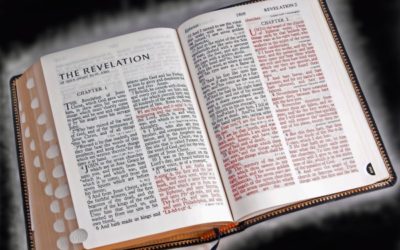The ninth Article of Faith of The Church of Jesus Christ of Latter-day Saints declares, “We believe all that God has revealed, all that He does now reveal, and we believe that He will yet reveal many great and important things pertaining to the Kingdom of God.” Over the course of the Church’s history, revelations have made it clear that each person is entitled to receive revelation to guide him or her in life but that only one person—the President of the Church—can receive revelation for the whole Church.
Yet sometimes we treat the revelations received by prophets as something only they can participate in. When we do so, we live far below our privileges.
At the annual meeting of the Mormon History Association in 2005, Elder Marlin K. Jensen, who had recently been called as Church Historian and Recorder, told a story as part of his address to the association. I wasn’t there, having left the conference early to attend the temple with a daughter who was about to be married. But I heard the story from others, and it went something like this: “A man died and went to heaven. When he got to the pearly gates, there were two signs. One sign read, ‘Heaven, this way.’ The other read, ‘Lecture about heaven, this way.'”
The point of the story, of course, is that there’s a big difference between studying something and participating in it. Which would we rather do, go to heaven, or just study about it?
Which would we rather do, study the revelations, or participate in them? The difference is important.
Consider how differently Nephi in the Book of Mormon and his recalcitrant brothers, Laman and Lemuel, reacted to the revelation of their prophet father, Lehi. For example, when Lehi recounted his vision of the tree of life, Laman and Lemuel found it hard to understand, saying, “the Lord maketh no such thing known unto us” (1 Nephi 15:9).
They heard the revelation, had a hard time understanding it, figured it was just their dad’s thing and not theirs, and as a consequence got little out of it.
Contrast their experience with Nephi’s. “After I had desired to know the things that my father had seen,” Nephi wrote, “and believing that the Lord was able to make them known unto me, as I sat pondering in mine heart I was caught away in the Spirit of the Lord, yea, into an exceedingly high mountain, which I never had before seen, and upon which I never had before set my foot” (1 Nephi 11:1).
Nephi then had his own revelatory experience. His was not identical to his father’s. Instead, it was customized to his needs. Unlike his father, Nephi was not entitled to receive revelation for his brothers at that point. But he participated in his father’s revelation by studying and pondering it and enjoying his own remarkable spiritual experience as a consquence.
So it can be for all of us. If we look at the scriptures as just a record of experiences prophets had and study them superficially, we will get little out of them. But if we study the scriptures with the desire and goal of having our own spiritual experiences, they will come, and in that way, we can participate with the prophets in revelation.
Credit for image at top of page: Stock image from depositphotos.com.



